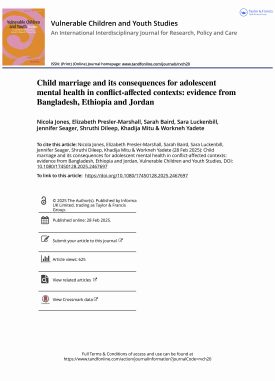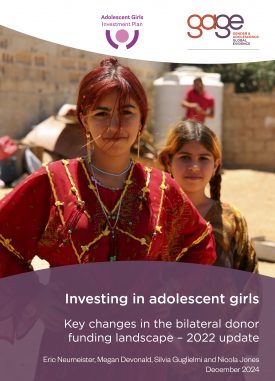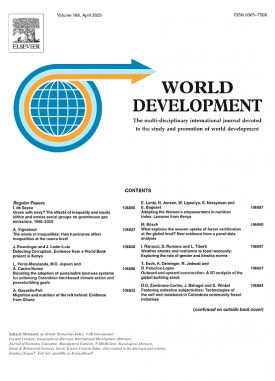Sustainable development is an effort to balance social progress with environmental equilibrium and economic growth. Young people affected by forced displacement are particularly vulnerable to the economic, environmental and social challenges of their surroundings. Using a framework that centres sustainable development on these three interconnected pillars, this article explores how the economic and environmental contexts in Lebanon impact adolescents’ and youth social development, drawing on qualitative data from adolescents in refugee and host community settings.
We highlight the need for a more integrated approach to sustainable development that will allow both present and future generations in Lebanon to meet their own needs and live empowered lives. It outlines measures that could help achieve this approach, including: creating policies and programmes to equip young people with the skills they need to take up jobs within the green economy; investing in adolescent-friendly social protection with linkages to environmental projects; and improved shelter, health and WASH facilities, particularly in response to the impacts of climate change.
Suggested citation
Devonald, M., Jones, N. and Youssef, S. (2022) ‘We Have No Hope for Anything’: Exploring Interconnected Economic, Social and Environmental Risks to Adolescents in Lebanon. Sustainability 14(4):2001 (https://doi.org/10.3390/su14042001)


